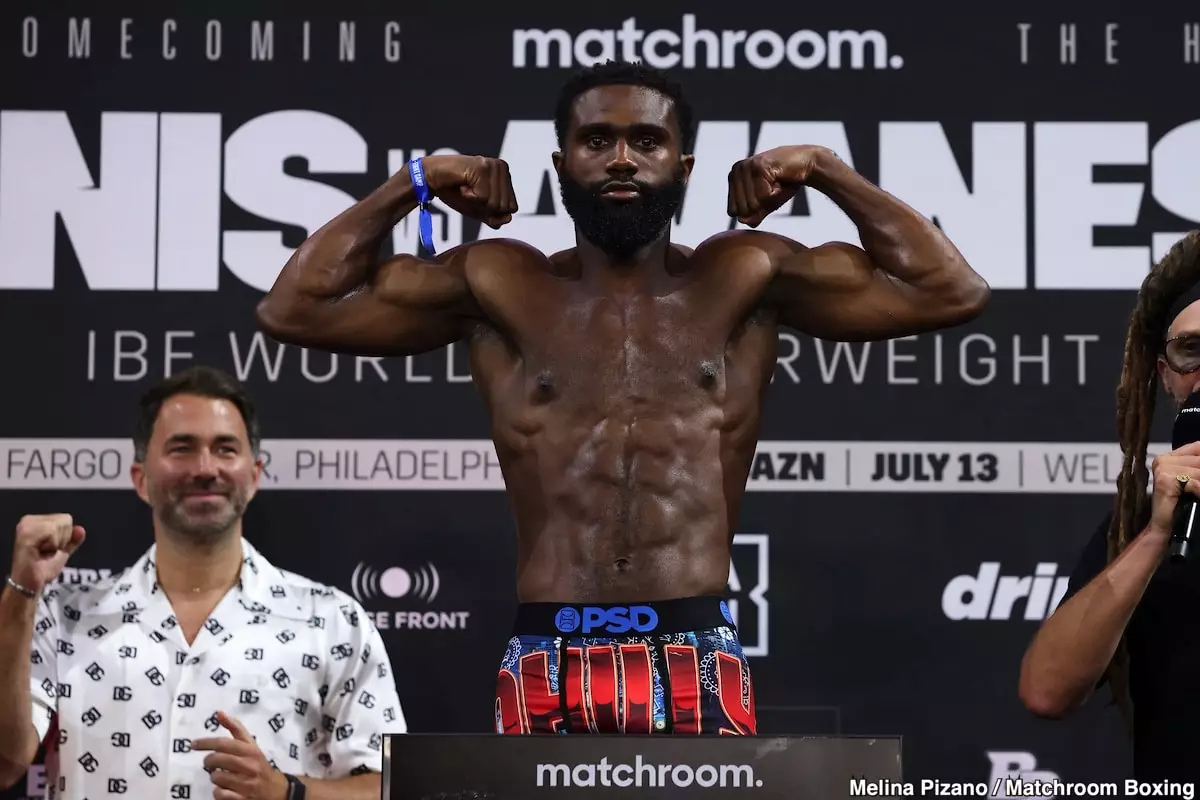Boxing, a sport often rife with passionate fandom and fierce rivalries, has recently faced scrutiny due to judging decisions that strike at the heart of its integrity. A notable incident unfolded during the Tim Tszyu-Joey Spencer match in Australia. The Australian judges assigned to the bout triggered a wave of frustration from Spencer’s team, as they had been promised neutral officiating to ensure fairness. Although Tszyu ultimately won by stoppage, rendering the subjective scoring moot, the underlying issue of biased officiating remains pertinent to future contests.
The Upcoming Clash: Ennis vs. Stanionis
As we look ahead to the highly anticipated welterweight unification showdown between Jaron “Boots” Ennis and Eimantas Stanionis, the conversation about impartial judging resurfaces. Reports indicate that all three judges, along with a referee, will hail from the United States. This raises eyebrows, especially given that Stanionis represents a competing nation. While the situation was reportedly agreed upon by Stanionis’ promoter, Tom Brown, the absence of any impartial officials still feels disconcerting.
The Risks of National Bias
This situation calls into question the fairness of the judging process in boxing. In a bout where the stakes are sky-high and reputations are on the line, the perception of bias can distort the reality of the fight. If the match drags into the later rounds and results in a contentious decision favoring Ennis, the outcry from Stanionis’ supporters would be deafening. Given the fervor that fans exhibit, one can only imagine the uproar if the judges present their scorecards while seemingly ignoring the nuances of the bout.
One might argue that the energy of the fans populating the arena has a palpable impact on judges’ decisions. The concern is that having three U.S. judges in the Ennis versus Stanionis encounter opens the door for skepticism, even if there are no overt signs of corruption. Boxing thrives on its storied history, and every match carries with it the legacy of fairness, but the presence of nationally aligned judges can easily fracture this legacy.
Viewing the Fight through a Critical Lens
Undoubtedly, Ennis is a skillful fighter, boasting an impressive record of 33 wins, 29 by knockout. Meanwhile, Stanionis, though slightly less experienced at 15-0 with 9 knockouts, has proven himself capable in the ring. Many analysts predict that this contest will unfold as a tightly contested battle. Every punch thrown and each round scored will undoubtedly be scrutinized, raising the stakes for the judges and amplifying the already existing tensions.
It remains vital for the integrity of the sport that officials are scrutinized for impartiality. Boxing fans care deeply about not just who wins, but how that victory is achieved. A fight mired in controversy can mar even the most thrilling contests. Therefore, officials must be selected with an eye towards neutrality to safeguard the belief in fair play within a sport that continuously walks the knife’s edge between drama and legitimacy. Ultimately, ensuring impartiality may be just as crucial as the fighters in the ring, for it is the judges’ scores that frequently define a champion.

